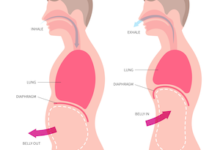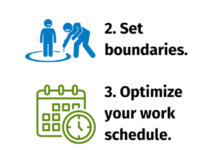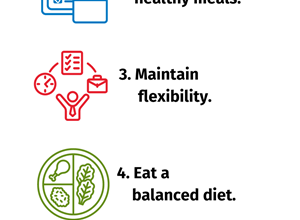A Pathway to Professional Success and Patient-Centric Care

*articles contain affiliate links*
Nursing empowerment is a critical aspect of quality patient care. If you’re a nurse, someone in the healthcare industry, or simply interested in understanding how empowered nurses can revolutionize patient care, this post is for you!
What is Nursing Empowerment?
Nursing empowerment is a multifaceted concept that is pivotal to nurses’ well-being and the quality of patient care they provide. But what does it mean to empower nurses? Let’s delve into the essence of this crucial concept.
At its core, nursing empowerment is about providing nurses with the tools, authority, autonomy, and respect they need to excel in their roles. It’s a dynamic process that involves several key elements:
- Autonomy and Decision-Making: Empowerment starts with giving nurses the freedom to make decisions about patient care. This autonomy respects their professional judgment and expertise, allowing them to tailor care plans to individual patient needs and take leadership in healthcare settings.
- Professional Growth and Leadership Opportunities: Empowerment also means encouraging nurses to grow professionally. This involves providing opportunities for further education, specialized training, and stepping into leadership roles. By fostering a culture of continuous learning and development, nurses can expand their skills and influence in healthcare.
- Recognition and Respect: Empowerment in nursing is deeply rooted in the recognition and respect for the profession. It’s about valuing nurses’ contributions, listening to their insights, and integrating their perspectives into healthcare policies and practices. When nurses feel respected and their work is valued, it boosts morale and job satisfaction.
- Supportive Work Environment: A supportive work environment is crucial for empowerment. This includes having the necessary resources, a safe and inclusive workplace, and a management structure that listens to and acts on nurses’ feedback. A supportive environment nurtures innovation and allows nurses to advocate for the best patient outcomes.
- Psychological Empowerment: Lastly, empowerment involves the psychological aspect of feeling competent, self-determined, and impactful. When nurses believe in their ability to make a difference, it not only enhances their job satisfaction but also positively affects patient care.
Nursing empowerment isn’t just about giving nurses more responsibilities; it’s about creating an environment where they can thrive professionally and personally. It’s a critical step towards a more efficient, empathetic, and patient-centered healthcare system.
Why is Nursing Empowerment Important
Nurses are the largest group of healthcare professionals, with registered nurses comprising over one-fifth of all healthcare workers in the U.S., primarily working in direct patient care, as confirmed by Bureau of Labor Statistics and NCBI reports.
Nursing is the nation’s largest healthcare profession in the United States, with nearly 5.2 million registered nurses (RNs) nationwide. Remarkably, of all licensed RNs, 89% are employed in nursing, as highlighted in the AACN’s Nursing Workforce Fact Sheet. This statistic underscores the significant presence of nurses within the U.S. healthcare workforce.
Globally, the role of nurses is equally significant. Approximately 27 million men and women make up the nursing and midwifery workforce, accounting for nearly 50% of the global health care workforce, as noted by the World Health Organization. This figure demonstrates the indispensable role nurses play in healthcare systems around the world.
Nurses Impact Patients Lives
Nurses can make a positive impact on the lives of the patients they serve and the nurses who will come after them more than ever. As costs are cut and more demands are being placed on the shoulders of nurses, it’s essential that nurses feel empowered to advocate for their needs. Without doing this, many nurses will soon find that they cannot deliver the level of patient care they see fit.
Since nurses are on the front line of healthcare, they are directly impacted bybudget cuts and regulatory requirements. Many healthcare leaders, in their Ivory Towers, may think the “get” how all these changes affect patient care, but only the nurses at the bedside really see the full effects. They live and work it everyday.
Nurses are Afraid to Advocate for Themselves
Nurses will advocate for their patients without even pausing. It is second nature and there’s no question that any good nurse would ensure their patients needs are meet.
Unfortunately, nurses don’t often extend that same level of advocay to themselves of the nursing profession.
Many nurses believe that they have to take what they receive. They feel like powerless nurses because they are so job-scared that instead of advocating for themselves they often do not speak up when they are being expected to meet unrealistic expectations or when they are being treated poorly. They don’t realize that nurse empowerment leads to greater job satisfaction. Nurses don’t realize is that the choices they make will affect the work conditions and job requirements of future nurses. When a nurses chooses to act, or more often, not act, he/she causes a butterfly effect that will effect generations to come.
The Next Generation of Nurses
Nurses in generation Z (gen z) and zennials are different.
They value work-life balance and self care. They understand the importance of mental health. They speak up in far greater numbers than previous generations.
Perhaps a weird and positive side effect of cancel-culture, the youngest nurses hold leadership accountable. They are far more empowered that nurses of the past.
The Pillars of Nurse Empowerment
Empowerment in nursing isn’t just a buzzword; it’s a foundational element for professional success and exceptional patient care. But what exactly contributes to a nurse’s empowerment?
- Autonomy and Agency: Nurses thrive in environments where they have autonomy and agency. Being able to make decisions and have a say in patient care elevates their role from mere implementers to critical thinkers and leaders in healthcare. It’s about giving nurses the reins to steer patient care in innovative and effective ways.
- Leadership Opportunities: When nurses are given leadership roles, it’s not just a title. It’s an acknowledgment of their expertise and a trust in their decision-making skills. Empowering nurses with leadership opportunities fosters a sense of ownership and pride in their work, leading to higher job satisfaction and better patient outcomes.
- A Culture of Inclusivity: An environment where nurses feel valued and included is essential. This means having a voice in decision-making and policies that affect their work. It’s about creating a culture where nurses are seen as integral partners in healthcare delivery.
Achieving Empowerment in Nursing
So, how do we achieve this state of empowerment?
- Decision-Making Power: Empowerment starts at the bedside. Nurses should have the authority to make decisions about patient care, reflecting their expertise and experience. It’s about trusting nurses to know what’s best for their patients and giving them the tools to act on that knowledge.
- Supportive Leadership: Leadership plays a crucial role. Leaders who are inclusive, visionary, and emotionally intelligent create an environment where nurses can thrive. Support from leadership fosters a safe space for nurses to initiate changes and improvements in their practice.
- Psychological Empowerment: The feeling of being valued and recognized for one’s contributions leads to psychological empowerment. This is where structural empowerment, such as decision-making roles and leadership opportunities, translates into a nurse feeling competent and free to excel in their role.
Professional Development and Nurse Empowerment
The journey of a nurse doesn’t end at graduation; it’s a continuous path of learning and growth. Professional development is a cornerstone of nurse empowerment, significantly impacting both the quality of patient care and the personal satisfaction of nurses.
Here are some methods that nurses can explore to further their nursing autonomy and grow as a nursing professional:
- Lifelong Learning: The field of healthcare is ever-evolving, with new treatments, technologies, and best practices emerging regularly. For nurses to remain effective and provide the best possible care, ongoing education is essential. Organizations like the American Nurses Association offer a plethora of resources and opportunities for continuing education, which are crucial for nurses to stay abreast of the latest developments in their field.
- Specialization and Advanced Roles: Professional development often involves specialization in areas like pediatrics, oncology, or geriatrics, or advancing to roles such as nurse practitioners or clinical nurse specialists. These pathways not only enhance a nurse’s skill set but also open up new opportunities for leadership and autonomy. The National League for Nursing emphasizes the importance of these advanced roles in expanding the scope and impact of nursing practice.
- Mentorship and Networking: Building a strong professional network and seeking mentorship are key aspects of professional development. Organizations like the Sigma Theta Tau International Honor Society of Nursing facilitate networking and mentorship, connecting nurses with experienced professionals who can guide their career development and empower them in their roles.
- Certification and Recognition: Obtaining certification in specialized areas of nursing is not just about adding credentials. It’s a recognition of a nurse’s expertise and dedication to their field. The American Association of Critical-Care Nurses offers various certification programs that acknowledge the proficiency and specialized knowledge of nurses in critical care.
- Research and Innovation: Nurses are encouraged to engage in research to improve patient care practices and outcomes. Involvement in research not only empowers nurses by validating their expertise but also contributes to the advancement of the entire field. The American Association of Colleges of Nursing highlights the role of research in nursing education and practice, underscoring its importance in professional development.
The Impact of Nurse Empowerment
Empowered nurses are more than just happier employees; they are catalysts for positive change in healthcare. They bring innovation to patient care, advocate for patient needs, and contribute to a healthier, more efficient healthcare system.
Conclusion
Nursing empowerment is a journey, not a destination. It requires continuous effort from both nurses and healthcare organizations. By fostering a culture of empowerment, we pave the way for a more effective, patient-centered healthcare system.
Remember, empowered nurses don’t just change healthcare; they revolutionize it!






